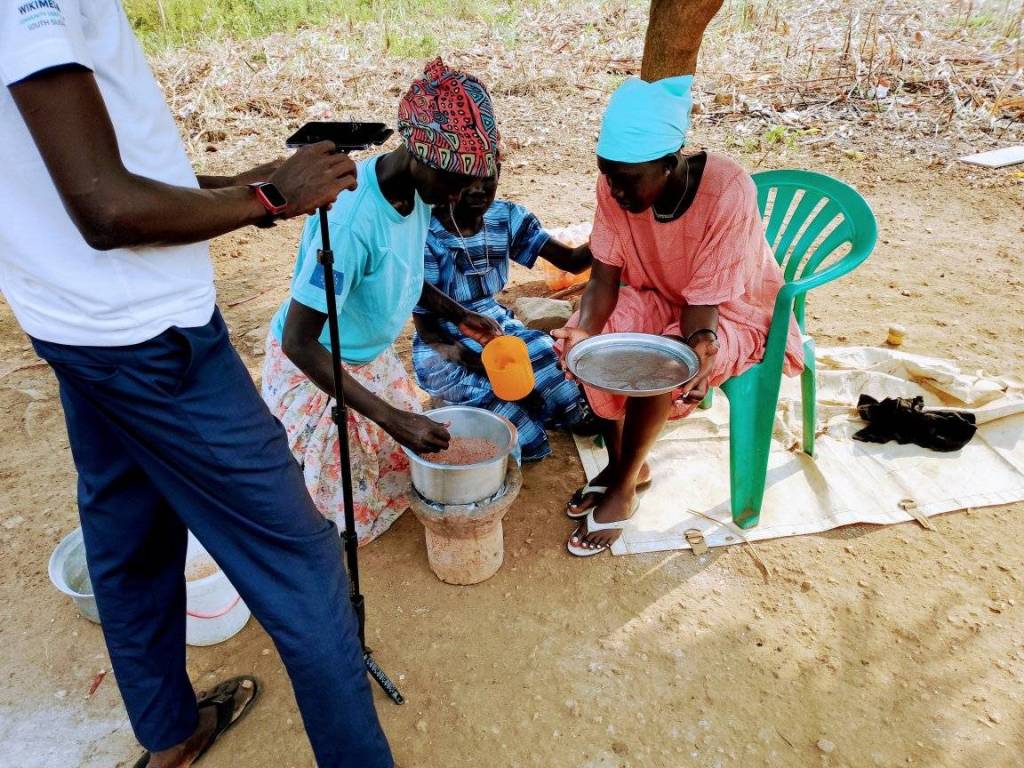I grew up being told oftentimes by the elders, ‘If our stories are not told, we do not exist.’ This resonated deeply with me as I watched one aspect of our history, languages, and tradition being slowly erased-either due to war, displacement, or changes from modernity. Libraries were scarce, digital resources even scarcer, and the little that appeared online never properly represented the rich and diverse cultures South Sudan has to offer. Determined to carry on this effort of documenting and preserving our heritage, Open Knowledge South Sudan, in 2024, took to Wikimedia.—
The Challenge: Preserving Heritage Amid Displacement
South Sudan is home to over 60 tribes, to be exact 64 each with its language, traditions, and stories. Possible group formation for the underprivileged generation of civilized refugees in more than 50 years has worked in natural development. Equally disconcertingly little or nothing has been found in the various online portals that have worked towards advertising and representing South Sudanese cultures. The question remained open – just how would you preserve and share such heritage before the history became just like an open book?-
Our Wikimedia Journey

Open Knowledge South Sudan began by launching the Oral History 2024 project to preserve the voices of our communities. Armed with a portable recorder, I and my team travelled to villages and refugee camps (Bidibidi, Rhino camp and Imvepi refugee settlements), documenting traditional songs, oral histories, and even lullabies. These moments were powerful—like my first interview with a Keliko elder who sang a generational song and said, “This song is a map of our land and our lives.”
Here is a category for some of the media: Oral History in South Sudan
Here’s how Wikimedia projects have been transformative:
Wikipedia
Wikipedia allowed us to create detailed articles about South Sudanese tribes, traditions, and languages. Articles about the Murle and Kakwa peoples now exist, ensuring their stories reach a global audience.
Wikimedia Commons
We uploaded recordings of traditional songs, dances, and oral histories, preserving them under free licenses. These are now accessible to researchers, educators, and the public.
Wikidata
By adding entries for South Sudanese languages and cultural elements, we created structured, globally accessible data. For example, we integrated pronunciation audios for words in the Pojulu and Keliko languages.
Wiktionary and Wikisource [In Progress]
Collaborating with local youth, we built lexicons for endangered languages and digitized rare texts, translating them into widely spoken languages to make them more accessible.
Impact: Bridging the Past and the Future
As evidenced by the diverse content we have shared on both social media platforms, individuals are actively exploring their ancestral heritage through our narratives. The stories we feature often involve interviews with knowledgeable elders and young people. Notably, we have made a conscious effort to include female elders in these interviews, recognizing their expertise and the fact that they have often been overlooked in terms of storytelling opportunities. By documenting these stories, we aim to amplify the voices of women and empower them to share their experiences.
These efforts began to ripple through communities. I’ll never forget a teacher in Juba telling me, “I found an article about our tribe on Wikipedia. For the first time, I felt proud to show my students that we’re a part of the world’s knowledge.”The project also inspired young contributors. Mary, a participant in one of our Wikidata training sessions, has become a local champion, teaching others how to document their communities on the Internet. For her, and many others, Wikimedia projects are not just platforms; they are a source of empowerment.

Looking Forward
As our work continues, the vision grows a South Sudan where every community’s voice is heard, preserved, and accessible to the world. Whether it’s documenting the Dinka language, capturing the songs of the Shilluk, or training youth to become the next generation of knowledge creators, we are committed to ensuring South Sudan’s heritage endures. Our journey with Wikimedia has shown us that knowledge is not just about preservation; it’s about reclaiming identity and building bridges for future generations.
Through Wikimedia, we’re telling the world: “We exist, and here is our story”.

Can you help us translate this article?
In order for this article to reach as many people as possible we would like your help. Can you translate this article to get the message out?
Start translation